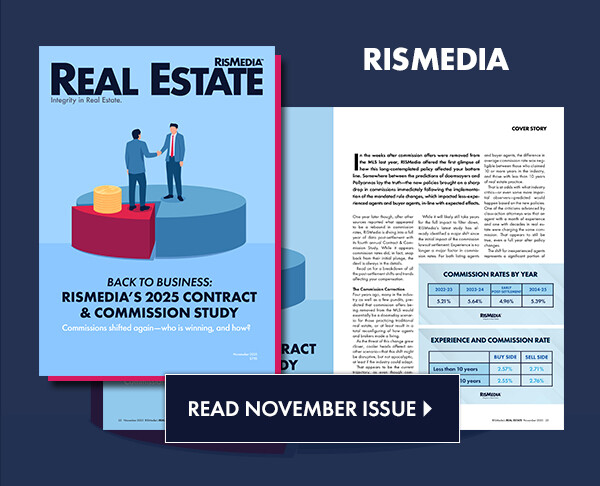 National Taxpayer Advocate Nina E. Olson recently released her annual report to Congress, identifying the combination of the IRS’s expanding workload and declining resources as the most serious problem facing taxpayers.
National Taxpayer Advocate Nina E. Olson recently released her annual report to Congress, identifying the combination of the IRS’s expanding workload and declining resources as the most serious problem facing taxpayers.
The result, the report says, is inadequate taxpayer service, erosion of taxpayer rights, and reduced tax compliance. The Advocate expressed her continuing concern that the IRS’s expanding use of automated processes to adjust tax liabilities is causing harm to taxpayers and recommended that Congress enact a comprehensive Taxpayer Bill of Rights.
“The overriding challenge facing the IRS is that its workload has grown significantly in recent years, while its funding is being cut,” Olson said in releasing the report. “This is causing the IRS to resort to shortcuts that undermine fundamental taxpayer rights and harm taxpayers—and at the same time reduces the IRS’s ability to deliver on its core mission of raising revenue.”
Workload Overload. The sharp increase in the IRS’s workload is due to several factors, including the increasing complexity of the tax code and the code’s frequent changes, and the need to provide service to an increasingly diverse taxpayer population.
“Each year,” Olson wrote, “the IRS’s task in identifying these claims has become more challenging, with the inevitable result that some fraudulent claims are never identified and many legitimate claims are mistakenly held up, imposing a significant burden on honest taxpayers.”
“Shortcuts” Shortcut Taxpayer Rights: “Non-Audits,” IRS Math Errors, Lack of Notice, and Delays. To keep up with its rising workload, the IRS is increasingly relying on automated data-matching procedures to identify potentially inaccurate claims and adjust tax liabilities.
Non-Audits and Automated Examinations. In 2010 alone, the IRS made about 15 million contacts with individual taxpayers to adjust their tax liabilities, but it treated only about ten percent (1.6 million) as audits. Thus, in the majority of cases, the IRS’s actions did not give rise to traditional audit protections.
Some “Math Errors” May Be Corrected Using IRS Data. In 2010, the IRS issued notices correcting 10.6 million “math errors,” up from four million in 2005. These notices are tax assessments that presumably result from mathematical or clerical errors. Unless a taxpayer disputes the IRS assessment within a limited timeframe, it may not be appealed to the Tax Court.
The IRS Determines Some Taxpayers Have Committed Fraud without Notifying Them and Giving Them an Opportunity to Respond. Under a program designed to detect returns relating to a scheme known as “Operation Mass Mail,” the IRS declined to process about 900,000 returns in 2011. In most situations where the IRS identifies questionable claims, it sends notices to the affected taxpayers to give them an opportunity to contest the IRS’s position.
Substantial Delays to Receive Large Refunds. Among taxpayers who sought assistance from TAS after their refunds were withheld on a suspicion of fraud, 75 percent received relief. These taxpayers had to wait an average of nearly six months overall to receive their refunds.
Taxpayer Service Concerns: Delays and Non-Responses to Taxpayer Inquiries. Two key indicators of taxpayer service are the IRS’s ability to answer taxpayer telephone calls and the IRS’s ability to respond to taxpayer correspondence.
Revenue Consequences of IRS Underfunding. The report says inadequate funding for the IRS contributes to many of these problems and means the IRS cannot adequately pursue unpaid tax liabilities. The report points out that the IRS functions as the “accounts receivable” department of the federal government, as it collects more than 90 percent of all federal revenue and therefore provides the funds that make almost all other federal spending possible.
National Taxpayer Advocate Recommendation. In light of the IRS’s unique role as the federal revenue collector, the National Taxpayer Advocate recommends that Congress develop new budget procedures designed to fund the IRS at a level that will enable it to meet taxpayer needs and maximize tax compliance, with due regard for protecting taxpayer rights and minimizing taxpayer burden.
Taxpayer Bill of Rights. The report urges Congress to codify a Taxpayer Bill of Rights that would clearly list the major rights and responsibilities of taxpayers. “The U.S. tax system is based on a social contract between the government and its taxpayers,” Olson wrote. “Taxpayers agree to report and pay the taxes they owe and the government agrees to provide the service and oversight necessary to ensure that taxpayers can and will do so.”
Most Taxpayers Don’t Know Their Rights. Over the past two decades, Congress has enacted three significant taxpayer rights’ bills, but the number of bills and the lack of publicity have muddled the message. The report describes a recent taxpayer survey in which 55 percent of respondents said they did not believe they had rights before the IRS and 61 percent did not know what their rights are.
10 Taxpayer Rights. The report recommends that Congress organize taxpayer rights under the following ten broad principles: (1) right to be informed; (2) right to be assisted; (3) right to be heard; (4) right to pay no more than the correct amount of tax; (5) right of appeal; (6) right to certainty; (7) right to privacy; (8) right to confidentiality; (9) right to representation; and (10) right to a fair and just tax system.
5 Taxpayer Responsibilities. To help taxpayers understand what the law requires of them, the report further recommends that Congress organize taxpayer responsibilities under the following five principles: (1) obligation to be honest; (2) obligation to be cooperative; (3) obligation to provide accurate information and documents on time; (4) obligation to keep records; and (5) obligation to pay taxes on time.
The report summarizes recommendations the Advocate has made in past reports to create additional taxpayer rights and recommends that those rights be incorporated into Taxpayer Bill of Rights legislation.
For more information, visit www.TaxpayerAdvocate.irs.gov or www.irs.gov/advocate.









